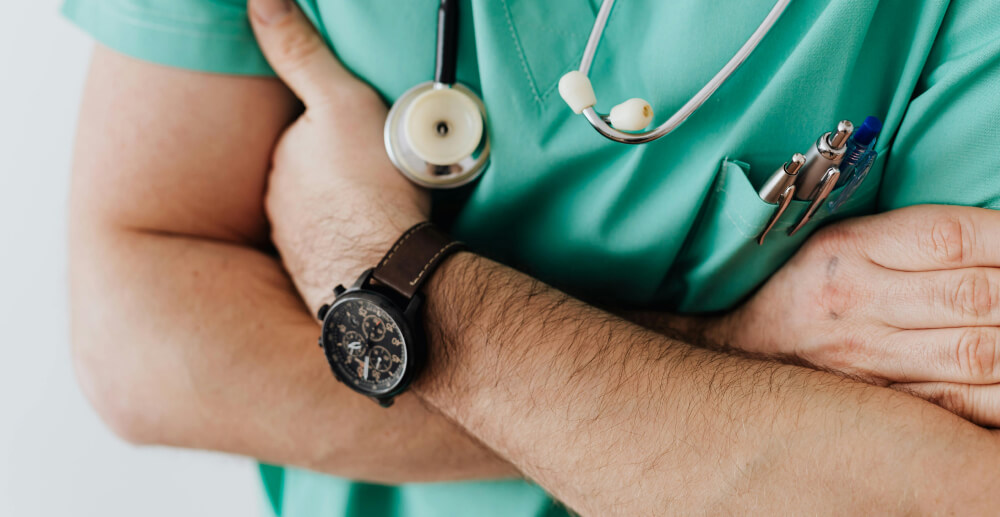Eva Hagberg Fisher, author of the memoir How To Be Loved, shares her experience of managing pain and sickness in sobriety.
When I first got sober, I regularly returned to thinking about my chemical sobriety. “It’s been six months since I’ve put ANY mood-altering substance into my body,” I’d say proudly to anyone who would (or wouldn’t) want to listen. And then it was a year. And then two years. And then three years. I remember celebrating my fourth sobriety anniversary, and realizing that I hadn’t put a single chemical that would alter how I felt into my body for four years. That clarity—that boundary—felt essential. I never wanted to break it. I didn’t think I’d ever have to.
In fear, I judged the way others used medications in recovery
By the time I’d celebrated five years, I’d watched a friend of mine treat her cancer—a disease that caused her excruciating pain. She’d attend a support group and then swallow three oxycodone pills on the way out, acknowledging that she’d gone into withdrawal by waiting an hour too long, hoping that the medicine would kick in and begin to treat the pain in her liver, the numbness in her feet, the swelling in her arms. I had judgment about her taking oxycodone. By that I mean: I was afraid.
I heard people talk about slamming their fingers in car doors, proudly declaring that they’d proudly refused a Vicodin prescription. I, too, I knew, would proudly refuse the Vicodin prescription were it ever offered to me. I had a body that needed to maintain its chemical purity. Only then, I believed, could I call myself sober.
A health crisis made me re-examine my beliefs about medication
Ten years ago, a cyst in my brain ruptured, hemorrhaging blood and protein into the center of my brain, behind my pituitary. A blood test revealed the presence of an elevated tumor marker; I needed a biopsy, which meant cracking through the sphenoid sinus and reaching back behind my pituitary, removing a chunk of brain and as much of the cyst material as possible. I was terrified, horrified by what was happening to me, and so I stayed close to my sober friends. It sounds impossible, but I didn’t really think about pain, nor what pain could be like. I understood, vaguely, that I would be given some sort of pain management during the surgery, but I didn’t think too much about it, or about what might happen after. And because I’d seen people so proudly refuse their prescriptions, the morning after surgery, in the hospital on the way home, I refused to accept the nurse’s prescription.
A day later, I wanted to die from pain. And that’s when I had my second surrender. There was no way that I could avoid taking pain medicine while recovering from brain surgery. And ironically, my refusal to take medication for the first twenty-four hours ended up permanently impacting my pain pathways; I had years of intermittent yet excruciating head pain that I probably could have avoided had I not been so … prideful. Because that’s what it was that kept me from accepting help in the form of medicine. Pride.
I had to learn a whole new way to navigate my recovery
Learning how to stay sober while also taking what felt like a metric shit ton of opioids brought me to my knees a second time. Every single time I took a pill, I checked in with another sober friend, my sponsor, or both. Sometimes, I did an entire inventory process—using the same tools I’d used to begin to understand my relationship to alcohol. Was I powerless over my pain? Yes. Was my life unmanageable because of it? Yes. How did I resent my pain? How did I resent people who didn’t understand this pain? It reminded me of how judgmental I’d been about my friend, and how that judgment had just come from fear that one day I might have to be in something similar to her shoes.
A friend who guided me through my recovery made a point once—that most of us get to put the tiger in the cage, and as long as we don’t take it out, we’re okay. But I had to take the tiger out of the cage, as needed, and figure out how to do that without letting the tiger eat me alive. And the way I did that was by continuing to put my pride in a pocket and text people and call people and say, “I know I’ve done this a hundred times, but can you help me figure out what to take next?” And they would ask me to rate my pain on a scale of one to five or one to ten, and they would ask me if I had other motivations, and they would ask me if I had tried a glass of water and an Advil, and they would suggest that I lie down and try and rest, and most of all they never judged me, and they surrounded me with love while I learned how to see the tiger in the cage, sidle up to it, and then let it help me.
When I first got sick—and I’m better now—a friend of mine who isn’t an addict or alcoholic asked me why I wanted to stay sober through all of this. “You have the ultimate excuse to drink,” she said. Sure, maybe I did. But I told her that as a recovering alcoholic, I had two choices. I could get loaded, and lose all my relationships, and go through this life-changing experience alone and high. Or I could keep asking for help, and feel like my life was almost intolerably terrifying, and do it with people. I could keep asking for help every single time I needed to put something chemical in my body. I chose the latter. I keep choosing the latter. And that’s what saved my life.








